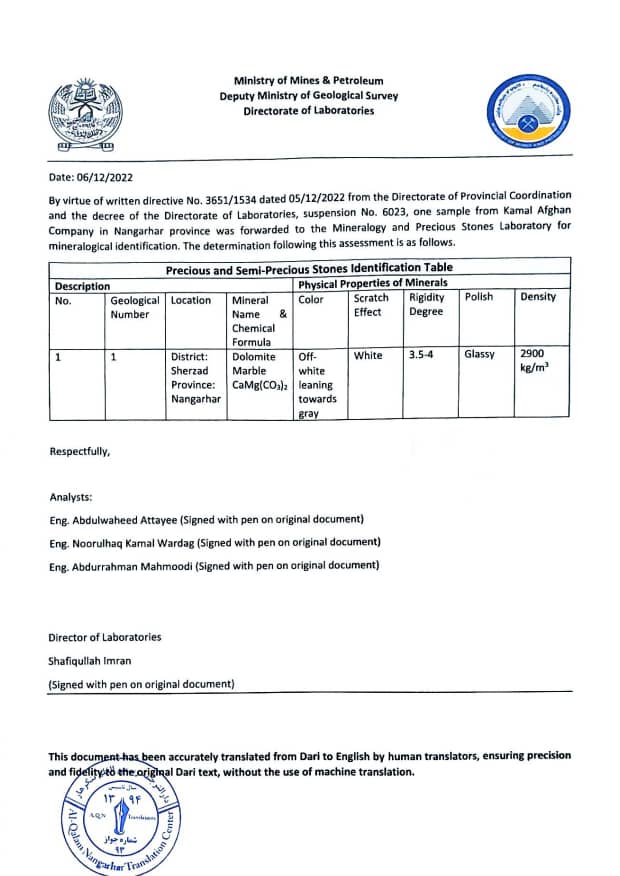
What is Dolomite?
Dolomite marble is a term used to define both the mineral CaMg(CO₃)₂ and the rocks in which this mineral is the main component. The rocks formed by dolomite minerals are also called dolostone. These rocks are formed not by the direct chemical precipitation of dolomite, but by the interaction of limestone with magnesium-rich waters. In semi-enclosed environments separated by elevation from the sea, excessive evaporation causes an enrichment of magnesium in the surrounding water, which then interacts with the calcite mud that has settled at the bottom. This transformation results in the formation of dolomite.
Properties of Dolomite:
Color Variations: White, grey, pink, green
Density: 2.90 g/cm³
Hardness: 3.5 - 4 (on the Mohs scale)
Usage Areas: Construction, decoration, landscaping, industrial applications
Natural and Eco-Friendly: Our dolomite stones are carefully extracted from nature and processed with environmentally friendly production processes.
Advantages of Dolomite:
Durability: Long-lasting usage due to its high hardness and durability.
Aesthetic Appearance: Adapts to all kinds of decorative projects with its natural colors and patterns.
Various Usage Areas: Can be used both indoors and outdoors.
Ease of Processing: Easily processed and shaped into various forms.
White Dolomite Marble:
White Dolomite marble is a premium type of marble with a white and clean appearance, rich in dolomite minerals. It is harder and more durable than other types of marble, making it a preferred choice for various interior and exterior applications. The following are some features and usage areas of White Dolomite marble:
Features of White Dolomite Marble:
Color and Pattern: In shades of white and cream, sometimes with grey veins.
Durability: Resistant to scratches and wear due to its high hardness level.
Gloss: Achieves a high gloss when polished.
Water Resistance: Suitable for outdoor use due to its low water absorption rate.
Usage Areas of White Dolomite Marble:
Floor Coverings: Ideal for use as flooring both indoors and outdoors.
Wall Coverings: Preferred for interior wall coverings due to its aesthetic and clean appearance.
Kitchen Countertops: Used in kitchen countertops due to its durability and easy-to-clean nature.
Bathroom: Commonly used in bathroom floors and walls due to its water resistance.
Decorative Elements: Considered an aesthetic option for decorative elements like stair steps and fireplace surrounds.
White Dolomite marble is a highly durable and versatile material that provides a modern and elegant look to spaces. Its long-lasting properties make it an ideal choice for projects requiring both aesthetic appeal and functionality.
Usage Areas of Dolomitic Marble:
Dolomite's unique physical and chemical composition makes it an invaluable resource with over 30 distinct applications. Its use as a construction material, particularly in roadways and railways, is well established. However, its versatility extends beyond these traditional applications. When its chemical characteristics are taken into consideration, its potential for use in a vast range of industrial and manufacturing processes becomes apparent. Dolomite is used extensively in various industrial sectors. Its magnesium oxide (MgO) content enables it to be employed in agriculture, as a fertilizer, in soil conditioning, and as a filler in the chemical industry, where it is especially important in paint production. It can also be used as a raw material in the brick, cement, and glass industries, and in the manufacture of soda. Its physical properties make it a highly sought-after material in the metallurgy industry and the construction sector as well. Dolomite used for facade cladding does not require special maintenance due to its resistance to climatic changes and high abrasion resistance.
Construction: Flooring, wall cladding, stair steps, facade cladding
Decoration: Table and coffee table tops, fireplace cladding, decorative objects
Landscaping: Garden paths, ornamental pools, rock gardens
Industrial Use: Ceramic, glass, and cement production
